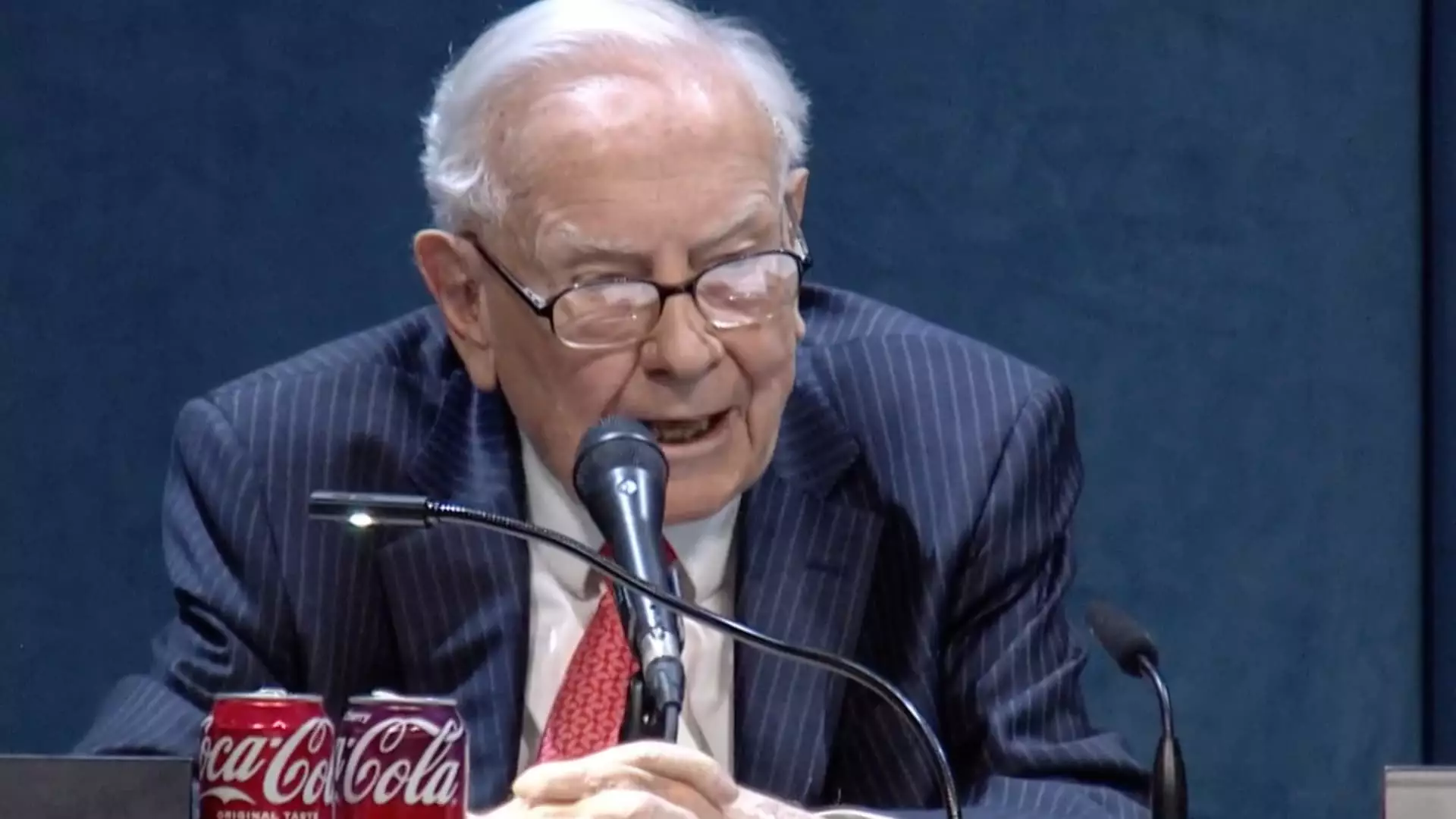Warren Buffett, widely regarded as one of the greatest investors of all time, has never shied away from sharing his thoughts on economic issues. Recently, during Berkshire Hathaway’s annual meeting in Omaha, he took a bold stance against protectionism and criticized President Donald Trump’s aggressive trade policies without mentioning him by name. Buffett’s condemnation of tariffs as “a big mistake” highlights a critical economic conversation that deserves our full attention, especially as the tremors of these policies ripple through global markets. In times of mounting uncertainty, Buffett serves not only as an investor but also as a voice of reason, pleading for a return to rational, cooperative trade practices.
Trade Is Not a Weapon
Buffett’s assertion that “trade should not be a weapon” encapsulates a philosophy that encourages collaboration over conflict. The point he raises is not merely theoretical; it’s underscored by historical evidence that shows how trade wars can evoke significant economic destabilization. By categorizing tariffs as “an act of war,” Buffett crystallizes the gravity of protectionist sentiment that has gained traction in recent years. Trade should ideally function as a bridge to foster prosperity, not a barricade to enforce isolationism. Buffett’s perspective on trade is not altruistic; it is rooted in the belief that with heightened global interdependence, prosperity for one country does not equate to loss for another.
A Lesson in Unity
Buffett emphasizes that the economic welfare of nations is interconnected. A common misconception is that a focus solely on domestic interests will bolster national strength, but Buffett argues otherwise. He posits that the more prosperous global populations are, the more benefits accrue back to the U.S. This perspective holds particular weight in today’s globalized world, where goods, services, and ideas flow freely across borders. Tariffs do more than disrupt trade; they also dissolve relationships and engender resentment among nations. In a world rife with existing geopolitical tensions, adding tariffs exacerbates these disputes and distracts from solutions that can be reached through mutual respect and understanding.
Economic Echoes of Protectionism
The news cycle has been rife with headlines about the stock market’s turmoil in response to tariff announcements. Buffett’s insights come during what can only be described as tumultuous economic times, with a contraction in the first-quarter GDP and rampant volatility on Wall Street. These developments serve as notifications of a larger systemic issue; uncertainty begets instability. Tariffs may allow short-term wins for some industries, but in the long run, they risk undermining foundational economic principles. The cautionary tales of previous protectionist strategies—historical lessons we ought to heed—demonstrate that isolationist policies can lead to recessions rather than revivals.
Defensive Moves from a Defensive Mindset
Buffett’s recent moves—selling off substantial stock holdings—point toward a defensive approach amidst uncertain economic seas. For a man whose financial strategies have historically leaned towards investing for growth, this turnaround underscores his belief that turbulent waters lie ahead. The fact that Berkshire’s cash position now rests at a record $347 billion further reinforces a sense of caution. In times of unpredictability, liquidity can instead act as a shield, allowing for more strategic opportunities down the line. This tactic reflects a mindset of preparedness rather than panic—a philosophy that holds relevance for both individual investors and larger corporations.
Building Towards a Unified Future
Buffett’s critique isn’t merely a lament for the past; it serves as a call to action for a more integrated global economy. He points out that America emerged as a superpower from its ability to leverage international resources and talents. As we look forward, we must consider how we can adopt policies that foster relationships rather than divisions; encourage partnerships rather than enmity. A reevaluation of our trade policies seems not only beneficial but necessary for sustained economic growth. The path forward requires a pragmatic approach that encompasses both domestic priorities and an acknowledgment of our interlinked fates as part of the global community.
In an increasingly complex geopolitical landscape, Buffett’s wisdom serves as a steadfast reminder that isolationism could be our undoing. As we confront the realities of protectionism, we would do well to heed his warnings for a pragmatic reevaluation of our global trade practices.

